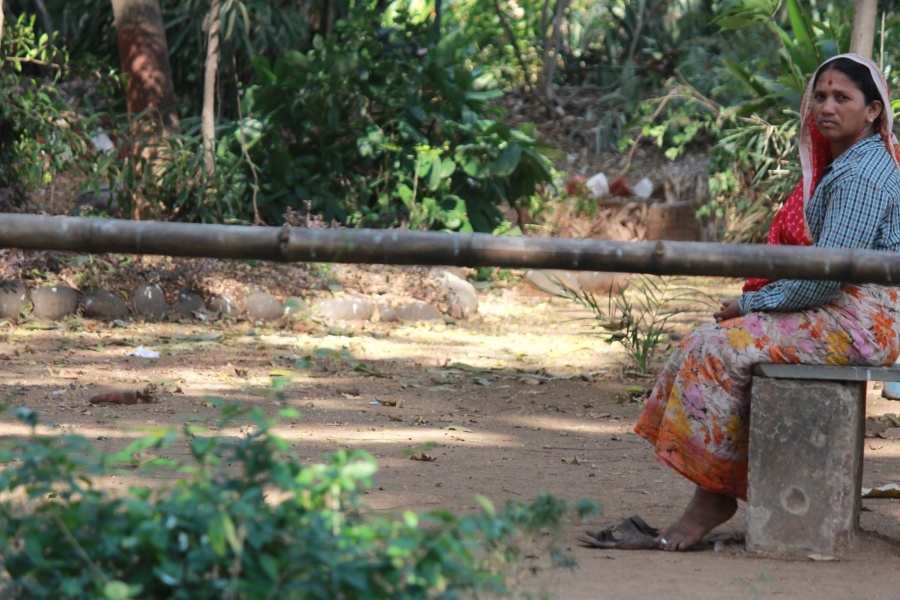Transactional sex is a widespread reality in humanitarian crises, and one of the strategies that many people use to secure their livelihoods. Dorothea Hilhorst, professor of humanitarian aid and reconstruction at the International Institute of Social Studies of Erasmus University Rotterdam, argues that humanitarian agencies, instead of ignoring this reality or understanding it solely as a form of sexual violence should rethink their view on the issue.
The #MeToo movement has swept through the world with millions of women testifying to sexual violence they have encountered. It has not left the humanitarian world untouched. In a brave guest column for Irinnews, two anonymous aid workers lift the veil of #MeToo in the humanitarian world. The humanitarian world, reads the by-line of the column, is not populated by saints, and the aid workers speak out about sexual harassment and assault in their sector.
Sexual violence in the humanitarian world is an extremely sensitive topic. It conflicts with everything humanitarian aid stands for and is morally akin to sex scandals in the Catholic Church. It evokes the scandal that rippled through the aid world in 2001 when female refugees in West Africa complained about being forced by aid workers to trade sex for food. Codes of conduct and other high-level interventions have subsequently promoted preventive action and alertness to abuse.
The aid workers writing the column also refer to the use of sex workers by male colleagues, especially in Africa. They take offence at the banter of these colleagues who come to the office after the weekend and brag about their sexual adventures. While I share the sentiment that such talk is offensive to anyone forced to listen in, I have difficulty accepting – as the column suggests – that sexwork in the context of humanitarian crises must always be seen as sexual violence. To my mind, humanitarian actors should broaden their view of transactional sex beyond sexual violence and acknowledge that it is an important aspect of livelihoods.
In the wake of the 2001 scandal, transactional sex in humanitarian emergencies – if discussed at all – has usually been considered under the heading of sexual violence. The sector is uneasily silent about the phenomenon, even though there is ample evidence which suggests that women – and men –resort in great numbers to transactional sex to survive a humanitarian crisis or to organize their livelihoods in times of duress. Apart from prostitution, where sex is directly exchanged for money, there is a massive and ill-demarcated resorting to transactional sex where the exchange of gifts is part of a broader set of relations. Although this is often construed as a form of sexual violence where powerful men abuse women’s despair to gratify their desires, there is also agency in the choice of people to engage in transactional sex. In 2016, I was part of a research team of the Secure Livelihoods Research Consortium, investigating the multiple realities of prostitution and transactional sex in Eastern DRC, together with colleagues from the gender center of the Institut Supérieur de Développement Rural in Bukavu, DRC. Our report, based on a large survey, interviews and focus group discussions showed a variety of reasons to engage in transactional sex, most importantly poverty and distress – but also the desire to advance in education or careers.
There are important reasons why the humanitarian world should be more explicitly concerned with transactional sex. Once it is recognized that transactional sex is often a livelihood strategy, this would also open the way for the provision of services and protection against some of the risks that come with the trade. Many women in our research revealed health problems related to their sexual relations. Lack of contraceptives makes pregnancy for most a constant threat, with many stories of children borne from transactional relations. Among the 480 sexworkers we surveyed, more than 200 reported to have undergone one or multiple (illegal) abortions. Awareness programmes and reproductive health services could make a big difference to this number.
There are clearly moments when transactional sex should be treated as sexual violence. Obvious cases are when perpetrators take advantage of the fact that someone has no other option to survive, when it concerns children, or when aid workers abuse their position and trade aid for sex. Outside of these, there remain many cases where adults engage in consensual yet transactional relations in areas of humanitarian crises. However, these relations are prone to become violent too. The stories of women we interviewed were full of instances of clients that refused to pay or used force, and of police officers demanding free sex. Transactional sex can never be an excuse for rape. The point is that outlawing transactional sex or making it a taboo will make it more difficult to identify and address cases of violence and abuse.
Once they get rid of the atmosphere of taboo and prohibition around transactional sex as a form of livelihood, authorities and service providers could start to listen to the specific stories of abuse, and encourage victims to report them. Making transactional sex a topic on the humanitarian agenda – seeking to strike a balance between ethics of aid, respecting the agency of people engaging in transactional sex and offering protection and services – is a first step.
Dorothea Hilhorst is professor of humanitarian aid and reconstruction at the International Institute of Social Studies of Erasmus University Rotterdam.
This article was first posted in issblog.nl.
The views expressed in this post are those of the author and in no way reflect those of the International Development LSE blog or the London School of Economics and Political Science.





This reminds me of the ambiguous situation some women were in under Nazi occupation, along with the self loathing projection meted out on them at liberation by their fellows, some of whom collaborated in other ways for survival in desperate times.